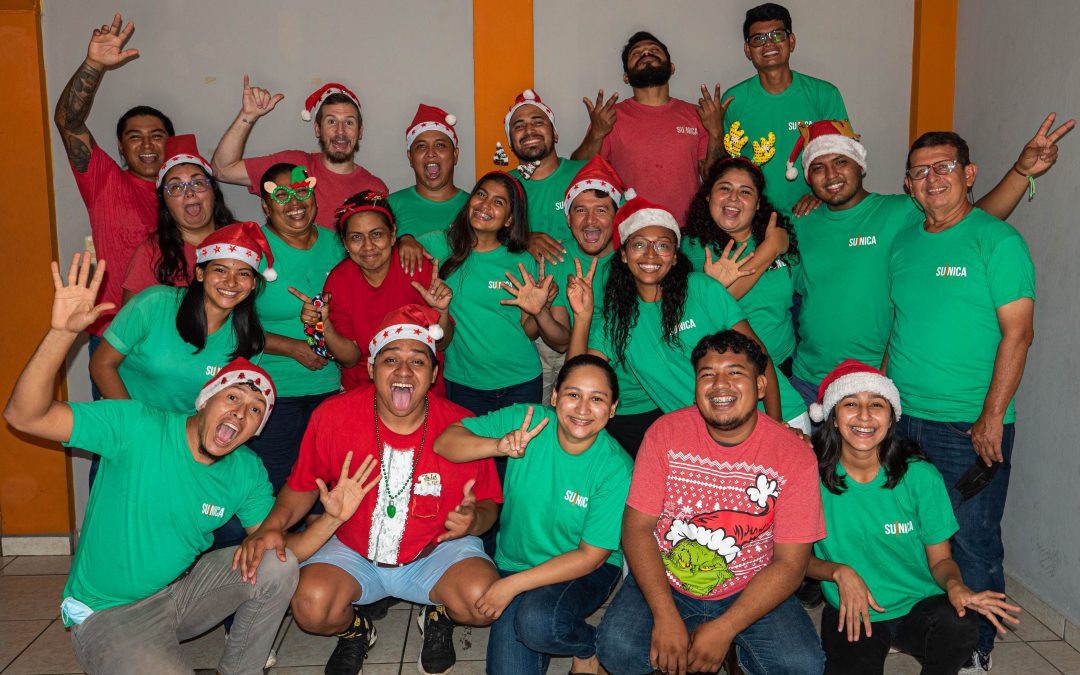In his book “Just Mercy,” Bryan Stevenson talks about how his grandmother would hug him for a long time and then say, “You can’t understand most of the important things from a distance, Bryan. You have to get close.”
Did you catch that? It’s about proximity. To be close to someone, you have to really understand them, really know them. Knowledge begets proximity.
The word knowledge has a multi-dimensional meaning in English, and we need context to differentiate between the different forms of knowledge. I grew up in an environment where head knowledge was the key to success. Like “don’t swim during electrical storms.” And it’s great to know things! Head knowledge is how we become educated, go to college, have a career, not get electrocuted during a storm.
But in Spanish, there are two different verbs for “to know” that you almost never interchange.
Saber: pronounced sa·ber
And…
Conocer: pronounced ko·no·ser
To saber something is to have informational knowledge about it. Head knowledge. You can ace an exam with this type of knowledge. But to conocer something is to have a more intimate understanding of the thing. It’s the way you would know someone.
Back to Bryan Stevenson and his grandma’s hugs…
Stevenson is a Harvard Law grad who sacrificed an incredibly lucrative career to help inmates (mostly men of African American descent) get off of death row, many of them for crimes they didn’t commit. But to feel the gravity of their situations, he first had to get close to them – to conocer them. And it was through the closeness to those men that Stevenson founded Equal Justice Initiative, a nonprofit that has exonerated more than 135 death row inmates and lowered the sentences of countless others.
Remember – “You can’t understand most of the important things from a distance, Bryan. You have to get close.”
These words ring true for me in so many ways, especially this time of year. I believe that we have a problem with knowing and being known. We’re deep into a cultural moment that makes good relationships hard and isolation easy. And yet…
It is closeness with my wife and kids that gives me the greatest joys of my life. It is closeness with other men in my life that holds me accountable and keeps me going. It is closeness with God that fueled the creation and now sustains the ministry I co-founded. And it is my closeness with God that gives me my value, my purpose, and brings beauty, goodness, and proper context to all of the other relationships I just mentioned.
What does this have to do with SuNica?
Jesus himself modeled that proximity to the Father was of paramount importance. He would routinely break away from his ministry (his work) to reconnect with God the Father. This verse captures it:
“And after he had dismissed the crowds, he went up on the mountain by himself to pray.” -Matthew 14:23
You see, Jesus didn’t just preach proximity – he lived it. He lived it, and he made it possible for us to live it too. Emmanuel. God with us. God near to us. That’s what we celebrate at Christmas. We can be in proximity to and intimacy with others because Jesus first came near to us.
SuNica is in the midst of an end-of-year campaign we’re calling A Sacred Season. This campaign will fund perhaps the most powerful aspect of our ministry: the Sacred Forest. Our retreat center where our students can rest, worship, and be close to each other. But the ultimate purpose in a Sacred Forest visit is to experience closeness with God and proximity to God. There is nothing more sacred than that.
This Christmas, we invite you to draw close to our work in the Sacred Forest and discover how you can be a part of it. But we also invite you to take stock of your own life this Sacred Season and ask – where is your Sacred Forest? Do you have people in your life whom you really know?
Because for the most important things in life, you have to be willing to first get close to understand them.
Written by Alan Wilser, SuNica Co-Founder and Director


Recent Comments